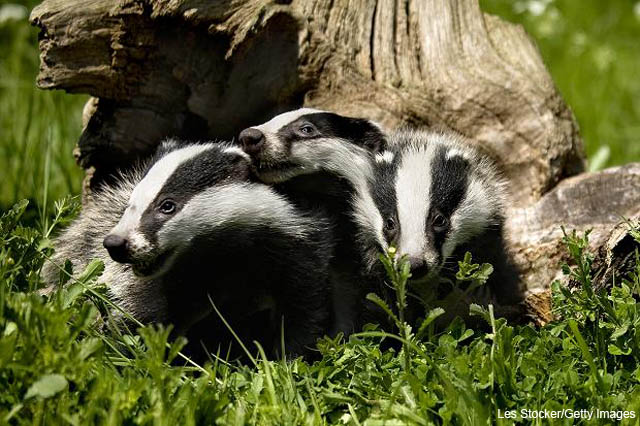SEE BRIAN’S COMMENTS ON SOAPBOX
THE TIMES
5 October 2013 by Ben Webster Environment Editor

Farmers could be allowed to gas diseased badgers in their setts, following research into alternatives to the shooting being used in the present culls.
The gassing of badgers using cyanide was banned 30 years ago because it was considered inhumane, but many farmers believe carbon monoxide poisoning would be a painless way of killing animals in setts that have been infected with tuberculosis.
Peter Kendall, president of the National Farmers’ Union, welcomed a decision by Owen Paterson, the Environment Secretary, to commission research into gassing and other “alternative sett-based culling methods”.
A six-week badger cull in Somerset to test the effectiveness of shooting is due to end next week. A second trial cull in Gloucestershire is due to conclude the following week.
Campaigners against the culls have been disrupting the work of marksmen trying to meet a target of killing about 5,000 badgers across the two areas.
If the results show that the target was not met or that shooting resulted in some badgers suffering slow, painful deaths, the Department for Environment, Food and Rural Affairs (Defra) could support gassing as an alternative.
Mr Kendall said the “holy grail” for cattle farmers, who lost 28,000 animals because of bovine TB in England last year, was a culling method that allowed them to focus on diseased setts.
He said that gassing would be easier than shooting because it would happen during the day when badgers were in their setts. However, he admitted that the public would need to be persuaded that gassing was humane. Defra’s draft strategy for achieving official “bovine TB-free status” for England, published in July, referred to a “potential investigation into the use of anoxic gas or gas-filled foam as a sett-based means of humane culling”
Defra has now confirmed that “initial research into the use of gas as a potential culling method is under way”. It added: “It is not possible to say at this stage if or when gassing is likely to be a realistic or humane method of culling.”
It said the research was “predominantly desk-based” and no animals or gas were being used.
A Defra study in 2005 concluded that carbon monoxide “raises the fewest issues regarding humaneness and feasibility”. However, it also said that gases might not penetrate throughout the complex set of tunnels in many setts. Badgers could retreat deep into the sett to escape it and be brain damaged without being killed.
Badger cubs might also be less susceptible to the gas than their mothers, meaning that gassing would almost certainly be banned in the breeding season to reduce the risk of cubs dying of starvation.
Derek Mead, a dairy farmer from Weston-super-Mare and supporter of gassing, said an unofficial experiment in Devon in 2005 had shown that gassing diseased setts reduced bovine TB cases by 90 per cent, far greater than the 16 per cent reduction found in the 10-year culling trial that ended in 2007.
Mark Jones, executive director of Humane Society International, which opposes the culls, said that Defra could find itself in breach of the Bern Convention on protecting wildlife if it allowed gassing.